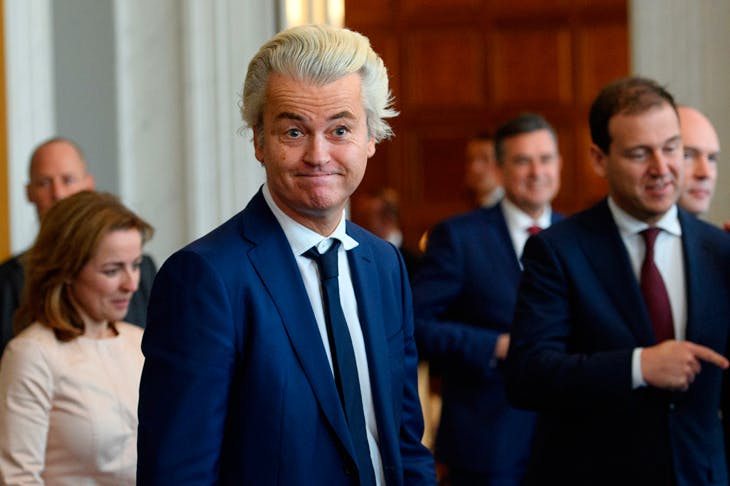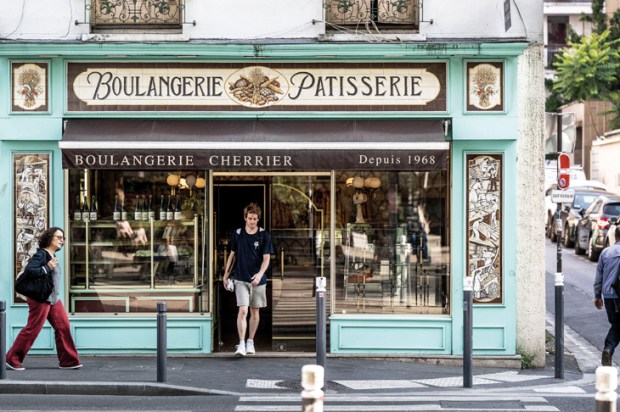The government deserves two cheers for its changes to Section 18C which may do something towards restoring free speech. But they still have not got it right. So long as judges can pass a political and social judgement on our conduct, the result will be much the same as in Andrew Bolt’s case. It is good that the new test will be the view of the reasonable member of the community, but the only way to assess it is to ask the community itself – through a jury, not a judge. Like nature, judges abhor a vacuum, and they will step in with their own rules of behaviour if the law does not make it clear that the people, through a representative jury, is the only safe way of assessing community sentiment and the standards of reasonable conduct. The new law should be called The Bill Leak Memorial Act 2017.
Having praised the government, it is a pity about its two recent back downs. First, the arts lobby has had another victory which will only make it more uppity. The government has given in and abolished the changes in arts funding introduced by George Brandis when he was minister for the arts. Brandis’ momentous and sensible change was to stop pork barrelling by the Australia Council for its mates in the arts mafia and to replace it by the responsible minister making some of the grants and defending them in public. But the arts establishment would never give up one of its fiefdoms and has clearly intimidated the government into regaining its former control under the guise of so-called independence. Secondly, Mark Dreyfus has got his way and is now able to have a look at George Brandis’ appointments diary. Now that this precedent has been established, the government will pay the price; the confidentiality needed for so much of government will vanish and good government will suffer. Perhaps the Labor party needs a touch of its own medicine. I might ask to see what contacts Kim Beazley, our ambassador to the US, had with Lockheed Martin, before he became a director of that company. Then I would move on to see what contacts Victorian ministers had with Karl Bitar, former ALP big-wig and consultant to Packer’s casino. The casino has just been allowed to expand its empire, with the waiver of planning and other controls. It would be in the public interest to see who has been talking to whom to bring about this cornucopia.
I have to go to Hong Kong in a few weeks and I have the choice between Qantas and Cathay Pacific. It is an easy decision. I am disgusted by so-called corporate leaders allowing themselves to be blackmailed and then using their influence to intimidate the rest of us on same sex marriage. So I have decided to do something about it, like my Day of Action for Israel where I do the rounds of Jewish businesses. Alan Joyce seems to regard Qantas as a platform to promote his own personal ideology, so Qantas is no longer my airline of choice.
Finally, I have trouble understanding the media assessment of the Dutch elections, namely that Mr Rutte won and Mr Wilders lost and, therefore, it is alright to go on handing Europe over to the Muslims. I often have trouble understanding these assessments. I used to believe that Donald Trump had been elected as the President of the United States. It was then explained to me by commentators, defeated candidates, think tanks and bawling students in designer outfits at Ivy League colleges, that he was not really elected because the electoral college system that allowed this travesty to occur did not reflect the true intention of the voters. The test of electoral success, it was explained, was the popular vote, which showed conclusively that Hillary Clinton had won. I had just got that principle straight when the mainstream media decided that this method was actually no good at all if it did not produce the result you wanted or one that was acceptable. So we were told that Mr Wilders’ party increased the seats it won by five, which showed that it had really lost. The government party of Mr Rutte, on the other hand, lost 9 seats, which showed that it had really won. Moreover, it was also explained that no matter what percentage of the poplar vote Mr Wilders had garnered, he would never be allowed to take part in the new government, because that had already been agreed by everyone before the election. This was because the popular vote is not just the votes that the people cast; the popular vote must exclude any part of it that is so popular that it is populist and even more so if it is extremely populist. There is now a European sliding scale; the more populist votes you win, the less role you are allowed to have in the government. The raw figures also verify the virtues of the popular, but not too popular, vote. Mr Rutte’s vote fell by 5.3 per cent, so clearly he won. Mr Wilders’ vote went up by 3 per cent, so clearly he lost. Mr Rutte is therefore popular but not populist, which is acceptable. Mr Wilders, however, is more populist, which is unacceptable. I think this all means that in the US, the popular vote is sacrosanct, no matter what the electoral law says because, otherwise, the Democrats would never win anything. In Europe, the popular vote is not so popular after all, as some candidates may become so popular that they are populist, which could lead to unacceptable but very popular people being elected. Moreover, as Europe is now definitely on the other side of the looking glass, you can give a more flexible meaning to the word ‘win’, namely whatever meaning you wish to give it, which must be a good thing.
Got something to add? Join the discussion and comment below.
Get 10 issues for just $10
Subscribe to The Spectator Australia today for the next 10 magazine issues, plus full online access, for just $10.
You might disagree with half of it, but you’ll enjoy reading all of it. Try your first month for free, then just $2 a week for the remainder of your first year.















Comments
Don't miss out
Join the conversation with other Spectator Australia readers. Subscribe to leave a comment.
SUBSCRIBEAlready a subscriber? Log in